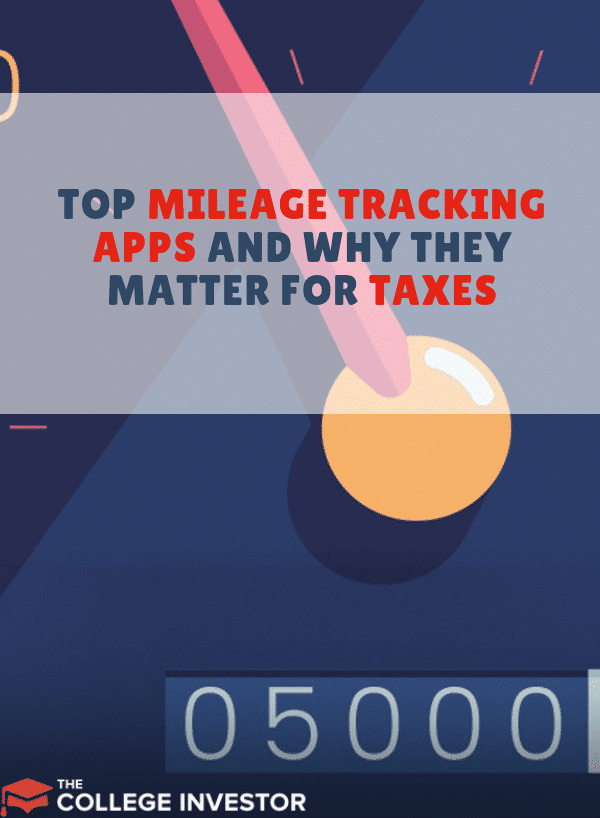
Maximizing your tax deductions is one way to save money at tax time, and if you’re a business owner, a side hustler, or self-employed, the mileage you put on your car could be tax-deductible.
The IRS allows you to claim up to $0.67 per mile you drive for a legitimate business purpose in 2024. That means a person who drives 5,000 miles for business can claim $3,325 in business expenses (and likely save $1,000 or more in taxes).
But to claim the deduction, you need to track your trips. Thankfully, you don’t have to keep a paper log in your car anymore. Today, there are a myriad of apps that will help you track your mileage, categorize it, and help you calculate an appropriate deduction at tax time. Here are a few mileage tracking apps to consider.
Most Comprehensive: QuickBooks Self-Employed
QuickBooks Self-Employed is best known as an accounting app, but it also has a good mileage tracking app. You can use QuickBooks to track your mileage, and then manually select whether the trip was business or personal. The app is accurate, and easy on your phone’s battery life.
However, at $10 per month or $17 per month (for the tax features), the app is the priciest of the bunch. That said, the parent company of QuickBooks, Intuit, consistently delivers world-class business software at a manageable price.
If your only side hustle is ride-sharing, you’ll probably want to pass on QuickBooks, and spend your money elsewhere. However, small business owners who have to track a ton of expenses, and need help with bookkeeping, will reap benefits from tracking mileage and other expenses with QuickBooks.
Easiest to Use: Everlance
Everlance is the mileage and expense tracking app that I use and recommend most frequently. If you pay for the premium service (which I recommend), it costs $60 per year or $8 per month.
However, the app is hard on your phone’s battery life. If you’re using Everlance with Uber, Lyft, or another ride-sharing app, you could run through your phone’s battery life in just a few hours.
Despite the drawbacks, Everlance is incredibly easy to use, has no learning curve, and it’s possible to categorize multiple trips at once. It also allows users to snap pictures of receipts which makes expense tracking super easy (especially for entrepreneurs who regularly make purchases in brick-and-mortar stores rather than online). In terms of value for the dollar, I think that Everlance delivers.
Read our full Everlance review here.
Other Mileage Tracking Apps to Consider
Hurdlr
Hurdlr and Everlance offer similar features at similar price points. Hurdlr offers 100% free tracking as long as you manually start the tracking feature. Otherwise, it will cost $7.99 per month or $60 per year.
The one drawback to Hurdlr is a slow interface and a tendency to consume a lot of data. People with unlimited data plans won’t mind, but people who pay on a per-gigabyte basis should definitely avoid this one.
MileIQ
MileIQ costs $6 per month or $60 per year, and it offers some features that driving side hustlers will like. For example, you can combine two trips into a single trip (which is nice for those times you take a break on the road). However, the price point seems high since it doesn’t have other accounting features.
Mileage Tracker
The free Mileage Tracker is so limited that it’s not worth your consideration (you can see 20 trips at a time). By contrast, the paid subscription is an easy-to-use product that relies on an “iBeacon” rather than your phone’s battery.
Keep the beacon in your car and categorize trips from your app later on. The cost is $9.50 per month (plus $32 for an iBeacon if you decline an annual subscription). I like the idea that you don’t have to keep your phone on you (or charged) at every moment.
Bottom Line
When you’re an entrepreneur, you need to track your expenses and your mileage to keep your tax burden low. Mileage is a legitimate work expense, and tracking it should be a top priority for you. Unless you keep a paper log of trips in your car, get one of these apps, and start saving today!

Robert Farrington is America’s Millennial Money Expert® and America’s Student Loan Debt Expert™, and the founder of The College Investor, a personal finance site dedicated to helping millennials escape student loan debt to start investing and building wealth for the future. You can learn more about him on the About Page or on his personal site RobertFarrington.com.
He regularly writes about investing, student loan debt, and general personal finance topics geared toward anyone wanting to earn more, get out of debt, and start building wealth for the future.
He has been quoted in major publications, including the New York Times, Wall Street Journal, Washington Post, ABC, NBC, Today, and more. He is also a regular contributor to Forbes.
Editor: Clint Proctor Reviewed by: Richelle Hawley

